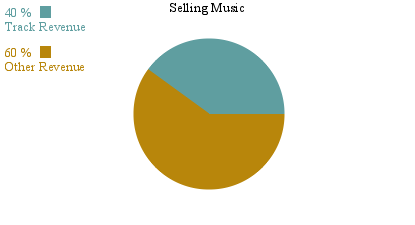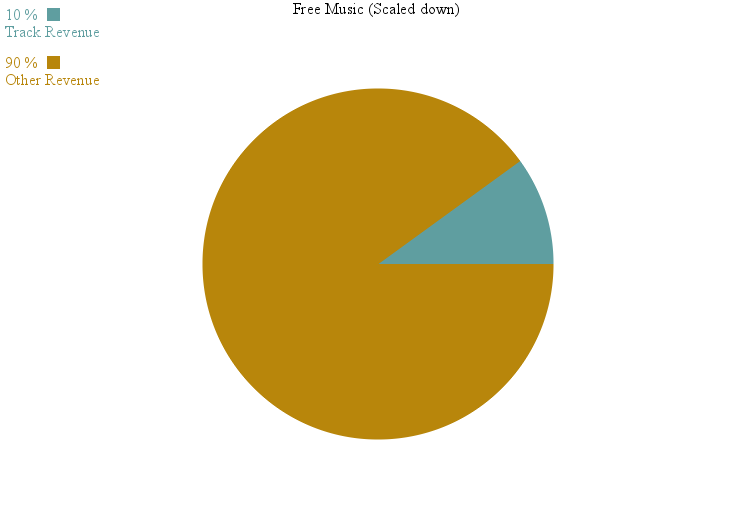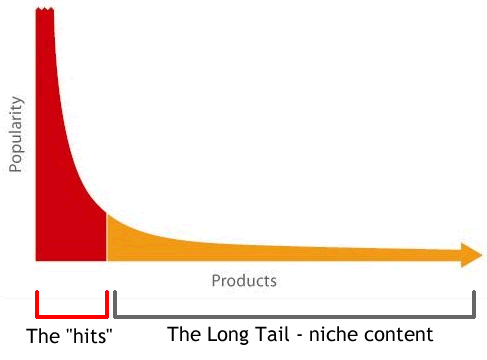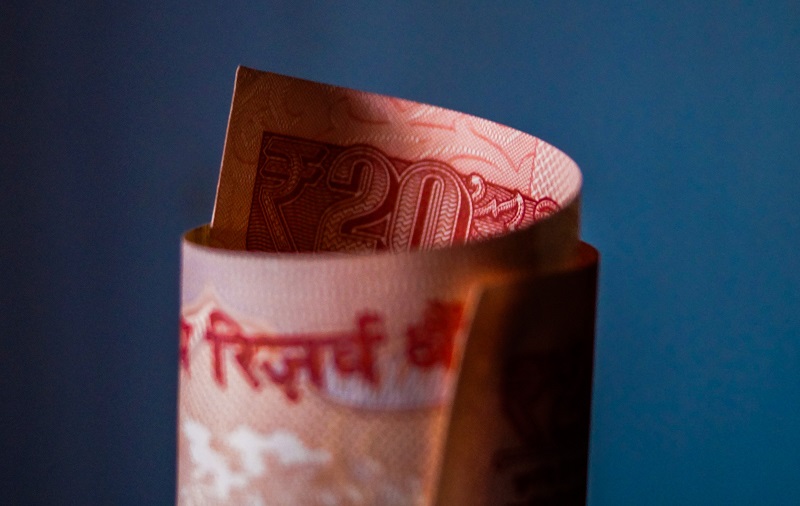I have always wanted to publish my ‘thesis’ on music (file) startups especially as it concerns Nigeria. I still do not have the time to do something comprehensive. However, as someone that spent quite a few years in this industry, anytime I hear another iTunes for Nigeria launching and relaunching, I get distracted mentally.
I am hoping by writing this long rambling thesis, that distraction will go away.
Please note that this was written in one go this morning. No time for edits or ‘cohesive writing’. I have Fonenode business pulling my ear. Sorry.
Let’s go.
- Doing a pure download/file startup (ala itunes) is a mistake.
- Creating a successful Nigerian streaming startup is kinda late now.
- The only opportunity is focusing on discovery and ancillary unpiratable business models.
With all politeness, Nigerian music startups in general have added practically zero value to Nigerian music therefore it is going to be extremely hard to capture value where you have not created it.
A model that depends on extracting money from from an artist after (s)he has become popular is quite wishful thinking.
The central revenue model of most music file startups is selling downloads (If you have no transactional revenue plan, and hope on advertizing to make it big, (LoL). Asides the fact that the approach to selling (by Nigerian startups) the music adds no value, it is anti to the success of the artist.
(Let me get this out of the way: iTunes has half a billion STORED credit cards and offers insane convenience. You are NOT iTunes).
Yes, I am saying selling music especially singles works against the interest of the Nigerian artist even the ones that have ‘made it’.
Take a look at this tweet by Don Baba J below
Late Comers==>> ‘SURULERE ft Don Jazzy’ by Dr SID on #SoundCloud? https://t.co/EA9Tyjcpqc
— Michael Collins (@DONJAZZY) November 28, 2013
He is giving actively giving away his latest hit track. Begging people to take it for FREE. Is that what you hope to sell? You may think is is mad and leaving money on the table. But my simple chart below explains why he is doing it.
SOURCE : Pulled out of me ass.
My interpretation
In the first chart, the artist makes a higher percentage of revenue from the sale of his tracks. However, because of the friction caused by focusing on selling music, the artist did not get popular. But did some shows though. Big share of small pie.
In the second chart, the artist did a Don Jazzy, pushed his music for free but still offered it for sale to those who want to buy via iTunes and other channels. As a result the artist got popular did lots of shows, performed at weddings and most importantly got paid to perform at the birthday party of the wives of the governors. How can I forget the endorsement revenue. (Small share but mighty pie).
“But we will sell albums!” I hear you cry.
Yup! You will sell albums. How many non singles from albums have made it big?
Fun Facts:
- Nigeria is the only market where an artist re releases a track from a published album as a single
- Our Artists sometimes release three singles at one go.
- Davido released about 6-8 singles before launching his album.
Ok, I’ll make it a bit more sad. You definitely have heard of the long tail.
I stole the chart from here
What the chart means is that a few hits drive most of the sales/interaction/traffic. In the case of Nigerian music startups, very few songs will make all the money and these are the very songs that are given away for free! *sigh*.
We have seen instances where artists were paid quite a boatload of to distribute the songs via a particular channel (iRoking and Spinlet come to mind). It was good for the artist though in the short term. Not so sure about the distribution platform.
For Spinlet, it can be argued that the money paid was a marketing cost in trying to get people to download their app. For EME though, it was also kind of a win as they put together a bunch of songs which may never have been released and got good money from it. Of course they still released it in the open market. I’m not sure how many career defining hits came out of that album.
As for purchasing music and hoping to profit from the distribution like they do in Alaba, that is a really bad idea. iRoking did that and stopped. There are no guesses why.
(Supplier power for music in Nigeria is so low so they cannot go after hulkshare and co even if they wanted to. how much is the value of music you are going to court for anyway. And the artist will still give it away for free. I think iRoking tried the legal method at a time).
Streaming/subscription:
Now, let us assume you want to go the streaming/ subscription route for the library of music. How do you undercut Deezer, Spotify, MOG, Grooveshark who can give you the latest Olamide and Eminem on the same platform. In Grooveshark’s case, it is free albeit a bit backward compared to Spotify and Deezer.
The awesomeness of those platforms is the tail end asides the terrific experience of having access everywhere.Having everything is what gives them the most value and without 100 million in the bank, you cannot even begin thinking of playing that game. Grooveshark began and got big before the labels tried to take them down.
Besides all the space for that model has already been taken. Even Rdio (backed by men who sold Skype 3 times!!) are finding it insane to crack.
So if you cannot exclusively distribute music, how do you want to make any serious money from it?
Re: creating value:
To know if a Nigerian music file startup gives value, which one would die today and have a dent on listening or revenue for artist?
None.
But some people create value. The bloggers, especially NotJustOk have added the most value to Nigerian artists. Without them, there is absolutely no way any Nigerian artist would attempt to tour UK/US/Malaysia etc. Unfortunately, they have not been able to capture the value they have created.
Sorry guys.
So how can money be made at all by the music startups?
Any music startup that wants to succeed, has to be at scale, and create something that has to do with network effect. For instance, if your startup has the best way to efficiently reach all the reggae lovers in Lagos, then you can tap into that because you would make it possible to have a successful reggae concert. Without you, it would have been impossible.
Can you make an artist get endorsement? Sell tickets, merchandise? Then you can tap into the value you create.
There are other unpiratable business models like caller back tunes which gave Iyanya 5 digits in dollars monthly for many months. Unfortunately, all the value of CBT is created and consumed by the telcos. If Kukere was sold exclusively there will be no Iyanya. Period.
But one thing is certain, you cannot pay for most of the music if you are to make any money. In theory, COSON would try to convince artists otherwise. I will take them a bit more seriously when I see any currently successful artists endorsing their shakedowns. They will not and they know it. They need radios and blogs to spread the music far and wide. The day Wizkid (who is insanely massive) decides to cramp down on the playing of their music in hotels, radio, public places, you will see enough people replacing them overnight.
This is because there is no short supply of great music. With a laptop you can create what can become a hit song in Nigeria.
(Fun experiment: 9ice has banned his music from blogs. Let us see how that turns out Lol).
More bad news
For those monetizing via say YouTube, the artist will go with you until he becomes big enough. Olamide is now on Vevo and you cannot match Vevo. Why? adding an Olamide increases overall value of their assets on a higher magnitude than yours. So you cannot match their offer. It is a global game.
You too yarn. What was the plan for GBEDU.FM?
Those who interacted with me 4 years ago know that I have a time frame for GBEDU.FM before it would become too late. I know if I was not already BIG by last year, it was over to go through the streaming route. The time has passed.
Of course I had (have?) other ideas on how it could still work and I will give away just a little. Any Nigerian music startup that wants to make it somewhat big (> $2million.year revenue) cannot buy music first of all. Secondly, they MUST align with a brand that will carry most of the operating cost in exchange for marketing exposure (meaning you must be big). Then focusing on creating value and sharing with the artists AFTER the value has been created. Alternatively, align with an organization who you will add value to even if independently, you cannot be profitable. e.e Like Spinlet is with Etisalat.
Other
I heard Michael Ugwu has focused on adding value in another way by making music distribution more efficient with Freeme Digital (I love the name!). I live seeing cashflow positive stuff. There is also DistroKid (affiliate link. Feel free to go straight) and another launching soon in that space.
I do not know how big that opportunity is but is a great way to be in the music business. Michael’s relationships with the artists gives him a head start and competitive advantage. Especially with back catalouges.
My advice?
Don’t enter the space now. It is too late. Except you are neck deep already or you have a completely different angle. Your effort will be rewarded better elsewhere.
I love this quote on music startups so I will end with it again
Music startup” is a misnomer, most music startups are actually music file startups. If you want to actually create a music startup you have to combine cultural understanding of music + identification of new acts/trends that haven’t been picked up by existing labels & media, with a deep understanding of new media technologies. Basically, think of the Web 2.0 equivalent of a Suge Knight. Nobody has ACTUALLY started a music startup yet — probably because it is hard to have both cultural and technical sophistication.
If someone creates a really authentic new digital space with authentic new artists, and uses the new digital medium to deliver the close personal relationship today’s music fans / etc want out of their bands and personalities, they are likely to make a fortune. Redistribution of existing content owned/controlled by labels and (equally evil) rights agencies is an epic failure of a business model, and does very little to address the massive thirst in the marketplace for new, interesting, authentic culture.
– Numair Faraz on why it is difficult to build a music startup
There are many things I left out and could have made this shorter. Sorry, I did not have time.
I’d love your comments.
PS: GBEDU.FM is still there but it is now my expensive hobby. You have a new iPhone? Cool. use and old phone but I have my personal music player. The domain name costs $100 a year.
PPS: I will edit later when I have the time (I lie)
BTW, Do check out Orin for mobile. It is theoretically a competitor but the lad is someone to watch out for.
This post first appeared on Oo’s blog.



















